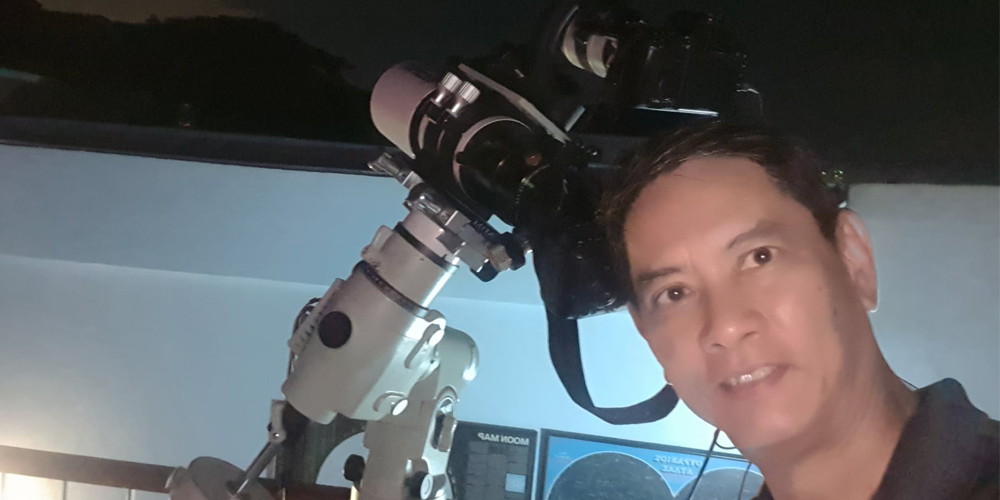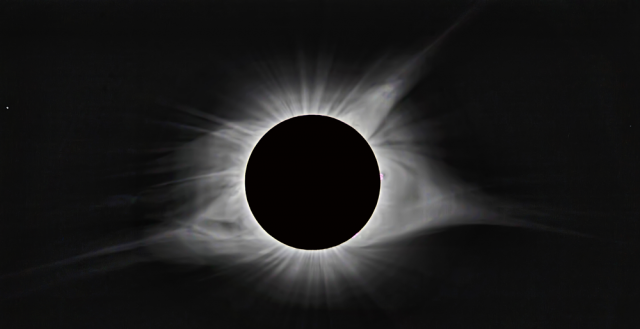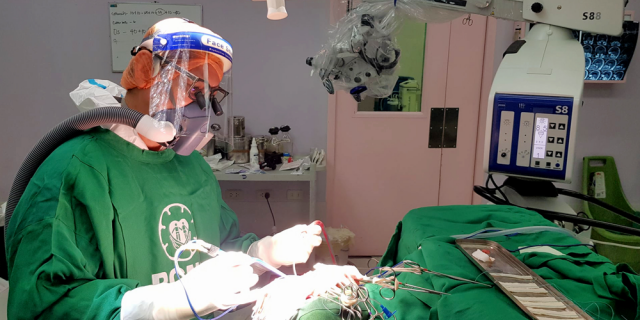A Filipino neurosurgeon and amateur astronomer has an asteroid named after him

An asteroid has been named after a Filipino doctor who treats children with brain and spine disorders.
Meet Dr. Jose Francisco “Jett” Aguilar, 60, a neurosurgeon at the Philippine Children’s Medical Center, Philippine General Hospital, and Cardinal Santos Medical Center.
As a doctor, Aguilar is used to looking through a microscope, but he is also an amateur astronomer who owns a telescope and enjoys looking at celestial objects.
“I guess all of us when we were still children, when we look at the sky, we are fascinated by it. When I was a child, I was looking at a magazine, looking at telescopes and pictures of galaxies, and it ignited my interest in space and astronomy,” he told GMA News Online in an interview.
Aguilar didn’t pursue a career in astronomy; medicine was his first love. But sometime in 2003, the neurosurgeon's young daughter pointed to a bright red star – the planet Mars – and asked him about it. It quickly rekindled his interest in the heavens. Aguilar soon started his hobby of sky-watching and astrophotography. He wanted to share his knowledge with her.

Aguilar bought his own telescope and invested in other equipment such as a DSLR camera and special filters. He also joined the Astronomical League of the Philippines, where he currently serves as vice president.
Despite his busy schedule as a doctor, he always finds time to look at the stars and uses it to relax and unwind on his time off work.
“The sky is open 24/7, so it will be there even as you go home in the evening... when you have time to indulge in it and it’s free,” he said.
Aguilar enjoys chasing eclipses and solar photography, and now he has an asteroid named after him.
The minor planet 1993 FN41, located between the orbits of Mars and Jupiter, was discovered in 1993. It measures eight kilometers wide, revolves around the sun once every 5.4 years, and the the International Astronomical Union (IAU) now calls it “7431 Jettaguilar” in honor of Aguilar.
On the website of The International Astronomical Union Minor Planet Center, Aguilar is described as "a Filipino neurosurgeon who has saved over one thousand children in the Philippines by volunteering his time and surgical expertise to treat their congenital malformations and brain tumors."
"He is also an amateur astronomer and serves as vice president of the Astronomical League of the Philippines," the website continued.
Unlike comets, which are named after the person who discovered them, asteroids are traditionally named after mythological figures, geographical places, and renowned personalities such as scientists, artists, and musicians, among others.
Aguilar joins the ranks of Edwin Aguirre and Imelda Joson, also known as the first Filipinos to have an asteroid named after them.
Aguirre and Joson published a reference book on Halley's Comet published by the National Research Council of the Philippines in 1985 and in 1995, asteroid 1980 TS4 was christened "6282 Edwelda" in honor of their accomplishments in astronomy.
Aguilar never imagined having a heavenly body named after him but he wants to share the recognition to his fellow medical frontliners battling COVID-19.
“I would like this to be an acknowledgment of the Filipinos healthcare workers who are working and delivering healthcare services even during the pandemic.”
Aguilar has saved over a thousand children in the Philippines with his work as a neurosurgeon for 20 years. In 2019, he successfully removed a parasitic twin from a three-week-old child called “Baby Ned.”

As a doctor, he has seen the many problems that people face on the ground. He thinks there are lessons to be learned at looking up once in a while.
“When you look in the sky, sabi nga ng aking friend, maraming exoplanets are there, thousands of them, at wala pa tayong nakikita that supports life. It’s only the Earth now that we know that supports life, and the more we should appreciate it, ‘di ba?”
“By looking at the heavens makikita natin very rare ‘yung ating condition, the condition we have on Earth, it’s because it’s the only one we have. Kapag nawala pa Earth, wala na tayong lahat, and the generation succeeding us.” — LA, GMA News





